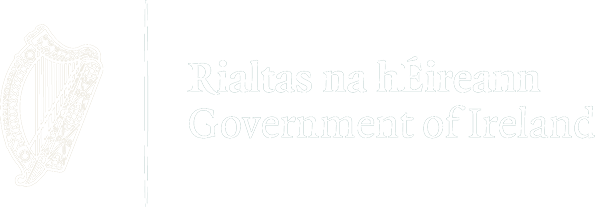Teaching and Learning
Introduction
The vision of MSLETB is to be a dynamic Education and Training Board providing a positive experience for all its learners in a professional, caring and collaborative education and training environment. Our mission is to provide those in our communities with opportunities for life and living.
Learning Ethos
MSLETB is committed to self-monitoring and improving the quality of the teaching and learning on its programmes and maintains an ethos that promotes quality in teaching and learning. MSLETB operates within a diverse learning environment, with learners coming from various educational, cultural, and socio-economic backgrounds. MSLETB is committed to the spirit of inclusion and equality where every Learner is valued and treated with respect. MSLETB promotes an open and consultative environment, where learners are recognised as partners in their education. MSLETB is committed to teaching and learning that is learner-centred, flexible, and inclusive, in accordance with the ethos and values of the board. As outlined in MSLETB’s FET Learner Charter.
Diversity of Learners
MSLETB as outlined in it’s Customer Charter is committed to providing the highest level of Customer Service.
MSLETB works to identify and eliminate barriers for the community to access its services by:
Pedagogy and the Learning Experience
MSLETB is committed to providing learners with high quality, innovative teaching and learning experiences. MSLETB’s programmes are delivered at on-site further education and training facilities. MSLETB is validated to run a proportion of programmes through blended learning or fully online and these developments are guided by our Blended Learning Policy. The objective is to provide high-quality flexible, diverse, and accessible learning environments for all participants. MSLETB’s centres are equipped with up to date facilities and technologies to support learners throughout their learning journey.
In addition, MSLETB staff are provided with Professional Learning & Development (PL&D) opportunities in order to facilitate the high-quality delivery of programmes. MSLETB is committed to creating a learning environment that allows learners to have a positive and holistic learning experience.
Learner supports that are available are listed on MSLETB website and are available from the programme coordinators. All learners are encouraged to participate in a wide range of activities on offer across FET centres that aim to promote a positive social and cultural learning environment.
Teaching Methodologies
The success of any curriculum is through the delivery of high-quality teaching and learning. All teaching and learning practices at MSLETB are firmly grounded in a learner-centric approach, with an emphasis on developing transversal skills such as critical thinking, problem-solving and independent learning within the learning journey. Learner-centric approaches emphasise the facilitative role of teachers and the uniqueness of learners.
It encourages the fostering of successful interpersonal relationships between teachers and learners, and an appreciation and respect for diversity and difference.
Learner Feedback
In accordance with the provisions of the Education and Training Board Act (2013), a learner representative is included as a member of the MSLETB board. MSLETB is a member of AONTAS and have participated in learner forums and events, which improve the learning experience for all of its learners.
MSLETB recognises the right of learners to have timely and constructive feedback on their progress and assessment. Formative assessment and feedback are integral to the process of learning and reflect the emphasis on learner-centeredness that underpins teaching and learning in the programme. Learner feedback within MSLETB are intended to place the learner at the centre of the process, emphasising opportunities for learners to seek and use feedback, and develop their self-awareness and critical thinking over time. MSLETB ensures that learners are provided with feedback in a clear, consistent, and fair manner.
Universal Design for Learning (UDL)
MSLETB approach to UDL is based on UDL Guidance for FET Practitioners. This UDL for FET Practitioners Guidance represents the culmination of a substantial consultation and engagement process with FET practitioners and leaders across FET, national and international UD/UDL and inclusive education experts, senior representatives from Government Departments and Agencies, NGOs, and support organisations.
UDL is an approach to teaching, learning and assessment based around a set of principles for curriculum development that supports teachers/instructors to proactively design teaching, learning and assessment for a diversity of learners. The UDL approach to teaching, learning and assessment seeks to remove barriers to learning for all learners rather than addressing individual barriers to learning. UDL aims to change the design of the environment rather than to change the learner.
MSLETB is fully committed to providing an inclusive learning environment thereby creating a culture of engagement and inclusion for all learners that is central to the teaching, learning and assessment strategies employed by all educators. MSLETB promote and support all educators in obtaining UDL qualifications.
Technology Enhanced Learning
MSLETB has significantly invested in Technology Enhanced Learning (TEL) to improve the teaching and learning experience across all programmes. Technology Enhanced Learning (TEL) remains an ongoing priority for MSLETB, in particular, the development of blended learning methodologies. (e.g. Within the Sales apprenticeship TEL leverages digital tools, software, and platforms to create engaging and interactive blended learning experiences for students).
This encompasses the integration of digital tools, software, and resources into educational practices to improve the overall learning experience, facilitate communication, and enhance the accessibility of educational content. Various technologies are incorporated in the course design, such as online platforms (eg. Moodle, Microsoft Teams), multimedia resources, interactive simulations, and collaborative software platforms (eg. Padlet, Kahoot, Mentimeter) all designed to augment traditional methods of education.
MSLETB TEL and PD coordinators are responsible for providing responsive targeted training based on needs analysis of staff in the area of teaching and learning.
National and International Effective Practice
Quality Assurance and achieving excellence are core values of MSLETB and are pivotal in providing the optimum learning experience to all participants. Excellence is achieved in the MSLETB by:
- Promoting and fostering a culture in which learning flourishes and where improvement, collaboration, innovation and creativity in teaching, learning and assessment take place.
- Recognising and affirming Professional Learning & Development (PL&D) and collaboration as intrinsic to enriching practice.
- Using international educational partners to share best practice, exchange, innovate and cooperate
- Encouraging professional collaboration – the sharing of expertise across the ETB sector. Recognising examples of good teaching / learning practices and sharing them across the sector.
Learner Complaints
MSLETB is committed to providing a supportive, respectful and fair learning environment; one that provides equality of opportunity and where learners are not subjected to harassment or discrimination. It is the policy of MSLETB to provide a fair, consistent and equitable mechanism for processing complaints by parents/guardians or students (who have reached the age of 18 years) against an MSLETB staff member and to do so in a manner that affords all concerned full rights in accordance with natural justice.
All details of the MSLETB Complaints Policy, along with the accompanying paperwork can be accessed here.
Learner Appeal
Where a learner is unhappy with their result they can appeal using MSLETB’s Appeal Process.



